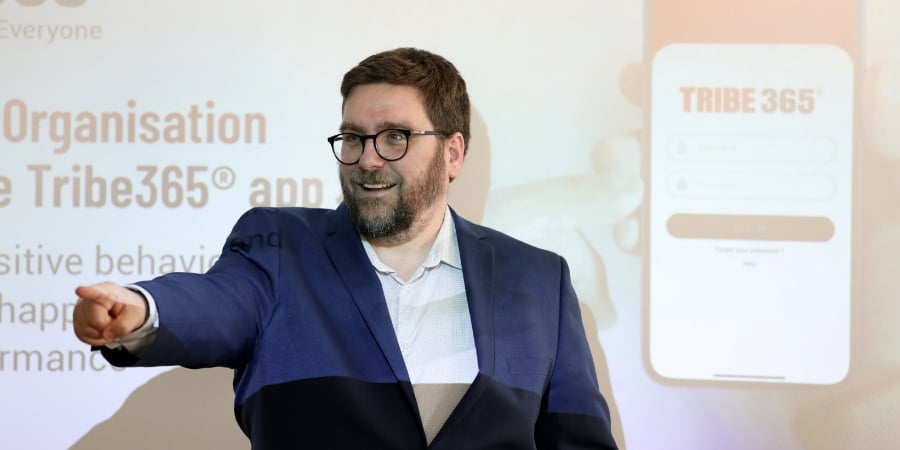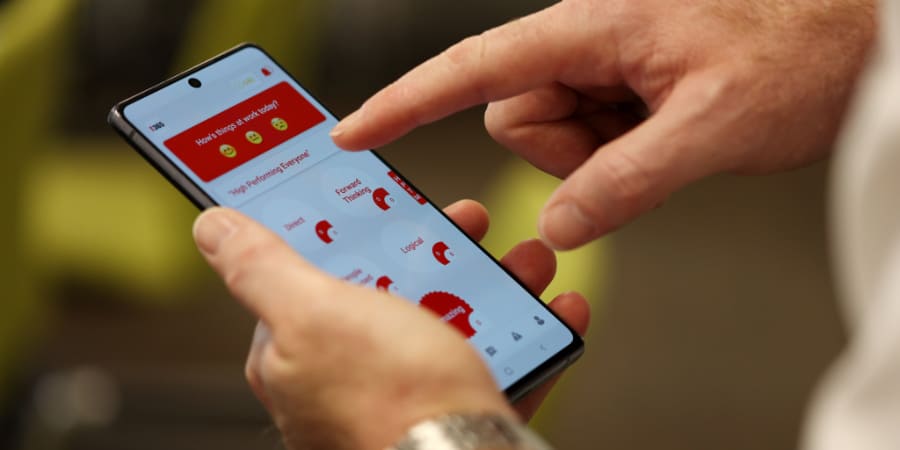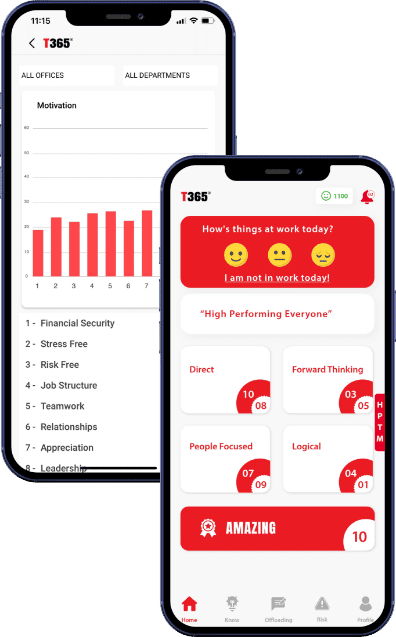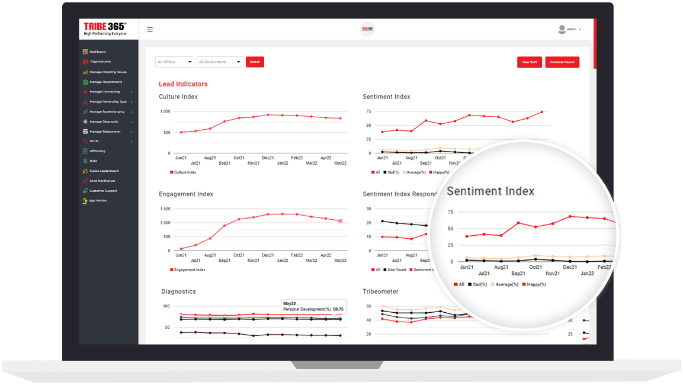How Do You Transform Culture?
Please take a look through the checklist below and answer the questions about your organisation as honestly as you can:
- Is it as well-prepared for the future as it should be?
- Did it struggle to adapt to change during the pandemic?
- Was it difficult to get people to adopt new ways of working?
- Is it a bit stuck in its ways?
- Does it need to be more agile and innovative if it’s to keep pace with the competition?
- Is it too siloed?
If you answered ‘Yes’ to any of the above, then it sounds as though your organisation needs to undergo a cultural transformation.
Easier said than done, though. The idea that an organisation can just transform itself in a short space of time and expect everything to land perfectly is wishful thinking.
You’re going to have to win heart-and-minds. You’re going to have to inspire people with a compelling vision and a pathway to get there.
And you’re going to have to encourage new behaviours while methodically eradicating unwanted ones.
Don’t Expect An Armchair Ride
Possibly the most challenging aspect of any transformation is creating and then sustaining long-term adjustments that come with change.
Imagine that it’s become plainly obvious to the leadership team that your organisation urgently needs to become an innovative, agile and risk-taking operation if it’s to survive and thrive.
The temptation is to start tearing down metaphorical walls and getting everyone to dump the ‘Steady Eddie’ attitudes which served the company so well for decades but are now holding it back.
But your cultural transformation will end up burning in a ditch if you take this kind of bulldozer approach.
Cultural change can’t be forced on an organisation. You can’t expect people to suddenly go against long-established corporate culture norms and everything they know.
Communication Is Key
A critical part of any cultural transformation is helping individuals and teams understand – and buy into – how they fit into an organisation’s goals and objectives.

It’s not enough to just throw the occasional message out there about your organisation’s mission and vision, because it just won’t stick or inspire.
The following will significantly help individuals and teams buy into your organisation’s proposed transformation:
- Create an exciting vision for your company that EVERYONE can buy into
- Develop an internal communication campaign that reinforces your messaging and the shared values needed to make positive change a reality
- Give EVERYONE the chance to have their say through an internal communication channel without fear of repercussions
- Help people understand how their roles, responsibilities and behaviours will directly influence great outcomes for all
Identifying The Need For Behavioural Change
If your organisation has been characterised by pragmatism and short-termism, the chances are that teams and individuals haven’t reflected on – or even cared about – behaviours that actually do long-term damage.
What do bad behaviours look like?
Well, from our perspective as Behavioural Governance experts, the below fall into the negative behaviour category:
- People feeling like they’re not being listened to
- People feeling like they’re not valued
- Decisions being made without the whole team being given the chance to have their say
- Work stopping people from achieving balance in their life
As a leader or HR professional, you may have an idea that too many of these behaviours are prevalent in your organisation. But how do you measure and prove that for sure?
And, on the flipside, how do you identify and encourage good behaviours that create a happy and high performance culture?
The Tribe 365 app is a data-driven plug-and-play solution that helps organisations tangibly measure how happy or unhappy people are feeling at work on a daily basis.
Organisations can use this data to identify:
1. Negative behaviours which cause unhappiness that, in turn, manifests itself in underperformance
2. Positive behaviours that make employees feel happy and perform at their very best
Want to find out more about the Tribe 365 app and how it can help your organisation eradicate negativity and encourage positive behaviours that inspire high performance?
Recognise And Reward Positive Behaviours
Organisations have been recognising star performers for years. And, of course, organisations should continue to do so, so that individuals continually aspire to deliver – and be rewarded for – outstanding performance.

But don’t forget to also celebrate those people who may not necessarily ‘stand out’ but do, just as importantly, consistently display behaviours that align with your organisation’s overall mission and culture.
Such people must be recognised and rewarded for consistently upholding the behaviours that are so vital to excellent team performance. Because, much as individuals can do great things on their own, great teams can do so much more.
And the more valued people feel, the more willing they will be to deliver their best possible performance, day-in-day-out.
Eradicating Negative Behaviours
Every organisation should aim to eradicate negative behaviours and encourage positive ones.
But have you ever tried to change any of your own deeply embedded behaviours? Like heading to the gym rather than the bar? Or switching to a healthier diet?
It’s really, really difficult for most people.
Now think how much harder it is to get other people to change their behaviours.
If you’ve ever actually succeeded in altering your behaviours, did it happen like the flick of a switch? Probably not.
We’re not saying that never happens – people do, after all, have epiphanies – but more often than not, it’s a case of slowly changing behaviours over time. And, crucially, creating an environment conducive to positive change.
Below are 4 key behaviours and principles that we think are essential for shaping team environments favourable to cultural change:
Principle 1: Make sure you all believe in what you are trying to achieve
High performing teams always need to 110% believe in what they are trying to achieve. If you truly want a team of high performing employees, this is where it all starts.
Establish why you are doing what you are doing and communicate it through a powerful vision that truly inspires people.
Principle 2: Does everyone agree with the way forward?
Everyone in the team needs to be involved in every decision, as opposed to a minority dictating each and every move.
Constantly ask everyone in the team “Do you agree?” every time somebody proposes taking a new direction.
That way, people have the opportunity to air their concerns early on in the process; and teams can work out the best solution together.
This approach actually saves time in the long-run because it helps people ‘buy in’ early on in the joint decision-making process, thereby reducing the likelihood of someone throwing a spanner in the works later down the line.
Principle 3: Make sure teams achieve good balance
The ‘work comes before everything’ attitude is deeply unhealthy.
It creates unhappiness in the workplace and damages people’s lives outside of it.
People need balance. And a high performing team needs to agree on ways to help each and everyone in it to find the right balance in their lives.
Need to pick the kids up from school early? Not a problem, the team can pick up any tasks that need doing.
Need some downtime to recharge your batteries? A good team will assign your tasks to someone else, so that you don’t have to worry about your workload piling up while you’re away.
Principle 4: 100% operational honesty
‘Operational honesty’ is the idea of everyone in a team being honest with one another at all times.
Honest, that is, when it comes to raising thorny issues whenever they appear – and, vitally, tackling them together in a calm, constructive way.
This stops problems getting bigger than they need to be and getting out of hand.
The Vital Importance Of Behavioural Governance
If you’re trying to smoothly and successfully take your organisation through a cultural transformation, it’s crucial that you identify which behaviours need to change – and, of course, those that don’t.

Too many organisations lack real visibility and a consistent understanding of their existing culture.
The Tribe 365 app is the perfect solution to this problem.
Why?
Because it enables organisations to identify behavioural trends and set new behavioural goals by providing clear answers to questions like:
- Which behaviours do we want to eradicate?
- Which behaviours do we want to sustain?
- Which behaviours do we need to see more of?
Tribe’s Behavioural Governance solution helps define and create a framework that empowers all team members to take control, govern and reinforce positive behaviours.
Over time, this will result in the right behaviours becoming prevalent, and negative ones being eradicated.
If you would like to learn more about out Behavioural Governance solution and the app that powers it, please give the Tribe 365 team a call on +44 (0) 1325 734 847 or email team@tribe365.co

Interested in finding out more?
Book a meeting in with the Tribe team
today on +44 (0) 1325734847 or at
team@tribe365.co

















